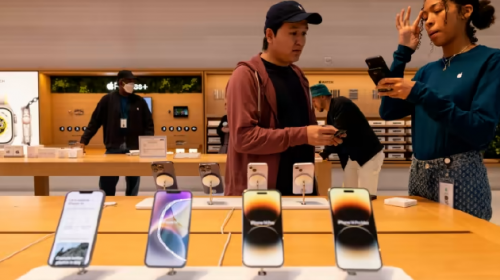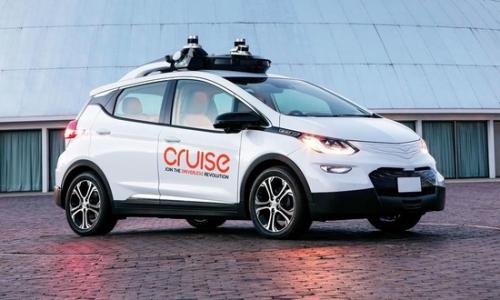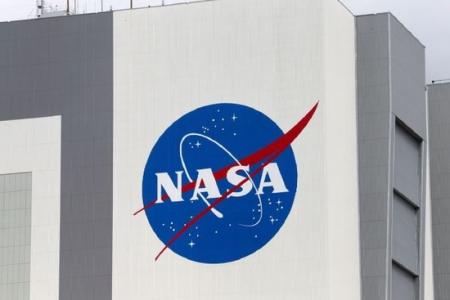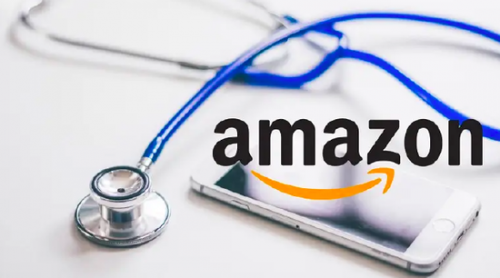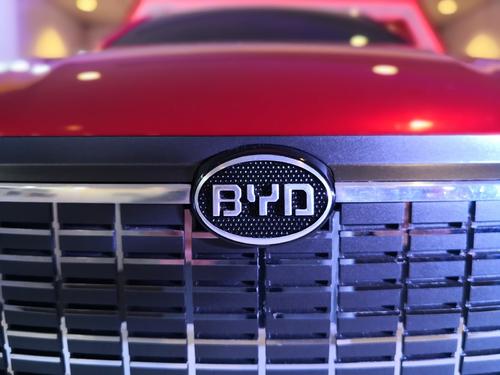your current location is:Home > TechnologyHomeTechnology
The "doomsday" of Apple's Lightning interface is approaching: tens of billions of profits are lost every year, but 90% of netizens applaud

Focus on:
1. The European Union requires a unified charging interface. Apple will be the biggest victim. In terms of accessories sales and MFi authorization and certification fees, the annual loss may exceed 10 billion yuan.
2. In a Weibo survey, nearly 90% of netizens expressed their approval, believing that a unified standard is a good thing; only 7% of netizens disapproved and believed that it should be left to the market to decide.
3. In the domestic market, the Ministry of Industry and Information Technology is also promoting this matter, and will jointly promote the formulation of relevant national standards with the State Administration for Market Regulation, and the domestic unified charging interface may not be far away.
Recently, a new regulation by the European Union to unify the charging interface has put Apple on the cusp.
Unlike other Android phone manufacturers that almost all use USB Type-C charging ports, Apple has insisted on equipping iPhones with a dedicated Lightning port for many years, and has always been an opponent of a unified charging port.
Slow charging and incompatibility with other devices, the Lightning interface not only brings inconvenience to users, but also generates more electronic waste, which runs counter to the environmental protection concept advocated by Apple.
Many experts pointed out that high accessories and MFi certification fees have brought a lot of profits to Apple, which is the fundamental reason why Apple is reluctant to unify the charging interface. If Apple eventually follows the new EU rules, the annual loss could exceed 10 billion yuan.
Apple crying? Tens of billions of profits are lost every year
The Lightning interface was born in 2012, and it supports both positive and negative plugs. However, ten years later, with the rapid advancement of data transmission technology, Apple is still insisting on using this interface.
At present, almost all mainstream Android phone manufacturers, including Samsung, Huawei, OPPO, vivo, Xiaomi, etc., have adopted the USB Type-C charging interface, and Apple has become a maverick existence.
Luo You, a researcher at the Star Map Financial Research Institute, believes that Apple has always been an opponent of a unified charging interface, and there are complex reasons behind it.
The reason given by Apple is that, first, forcing the industry to adopt the same charging specification through administrative orders will hinder innovation, and it should let the market choose which charging interface to use. Multiple charging specifications and protocols may develop more in the future. , more advanced charging equipment; second, environmental protection, the existing Lighting accessories are not compatible with general standards, and currently there are a large number of peripherals in the music field such as musical instrument tuning peripherals, DJ peripherals, etc. As well as the old Apple stock devices, once the new charging interface is switched, these devices are bound to be abandoned, and some charging devices will also face elimination, causing harm to the environment; other reasons may include that the Type-C interface is larger than the Lightning interface. , For consumer electronics where land is expensive, it will take up internal space, and the mold also needs to be replaced, which is not worth the loss.

However, more importantly, this industry chain alone has brought huge benefits to Apple. By charging MFi (Made For iOS) authorization and certification fees, the annual profit may exceed 10 billion yuan, so Apple does not would give up such a huge cake, which is probably the most important and deeper reason.
The new EU regulations this time will force Apple to abandon the Lighting interface and use the more general Type-C interface, which will make Apple lose a high source of licensing profits.
Tony Fadell, former Apple vice president and father of the iPod, expressed his support for the new EU rules on social platforms, saying it was not a problem for Apple and it was long overdue. He further pointed out that there is no technical reason for Apple to refuse, unless they continue to stand in the position of a monopoly and hinder continuous innovation.
In addition to affecting Apple's profits, manufacturers of Apple accessories will also be hit.
Luo You believes that if Apple finally follows the bill, it means that hundreds of millions of Apple devices and manufacturers will be affected, but it may not be a negative impact. On the one hand, Apple accessory manufacturers do not need to submit certification fees and go through a long certification period. On the other hand, the manufacturing process of the USB-C interface is extremely mature, and the transformation may not take long, and there may be no pain period.
Yuan Bo, a senior communications engineer and strategic planning expert, believes that this is a mixed blessing for companies that produce Apple accessories. The good news is that Apple accessories do not need to pay high authorization and certification fees, and the reduction in production costs will also make Apple accessories market. It is more prosperous; but the worry is that due to the uniqueness of the Lighting interface, the profit of Apple accessories has always been high. If all Apple mobile phones use Type-C in the future, it will virtually reduce the manufacturing threshold of Apple accessories. There is a certain impact.
User laughed? Nearly 90% of netizens expressed support
Many users welcomed the new EU regulations. "Finally someone is in charge", "I hope that Apple will also be notified in China that the Type-C port must be changed to be sold on the market."

In a Weibo survey, nearly 90% of netizens agreed, believing that a unified standard is a good thing; only 7% of netizens disapproved and thought it should be decided by the market; the other part of netizens thought it didn't matter.
In Yuan Bo's view, the unified charging interface market is the general trend. On the one hand, it is convenient for users, and on the other hand, from the perspective of environmental protection, it is conducive to the reuse of charging cables, and the advantages outweigh the disadvantages. The outside world also believes that the iPhone will also increase the data transfer rate and fast charging power after switching to the USB-C interface.
At present, the transmission speed of the Lightning interface is only at the level of USB 2.0, and the transmission efficiency is definitely not as good as that of USB 3.0 devices. In theory, the maximum transmission rate of USB 3.0 can reach 5.0Gbps, while USB 2.0 can only achieve a maximum of 480Mbps. In addition, models with USB 3.0 interface will have higher charging power.
In fact, Apple has made changes in some products. Although the iPhone and AirPods still insist on using the lightning interface, Mac and iPad products have basically completed the conversion of the USB-C interface.
However, some users have expressed concerns about this new regulation. One is the compatibility issue. Although they are all USB-C interfaces, the charging protocols between different manufacturers are not universal, which will lead to the fact that the fast charging chargers of other mobile phone manufacturers may not be able to fast charge the iPhone. Some users even pointed out that without MFi certification, will Apple have another USB-C certification? This is to change the soup without changing the medicine.
The second is Apple's compliance. Although the EU passed the bill, will Apple adopt the USB-C interface only in the European market and continue to use the Lightning interface in other countries?
Will China follow suit?
According to data released by market research firm Canalys, in the second quarter of 2022, the top five mobile phone manufacturers in mainland China in terms of shipments are vivo, Honor, OPPO, Xiaomi and Apple, of which Apple’s market share is 15%, and It is one of the very few brands that keeps growing.
Whether Apple, which plays a pivotal role in China, will convert to a USB-C interface will undoubtedly have a great impact on the experience of domestic users.
In fact, China has also been promoting the unification of charging interfaces.
Earlier, Ding Lei, member of the National Committee of the Chinese People's Political Consultative Conference and CEO of NetEase, put forward the "Proposal on Unifying the Standard Port of Smart Electronic Device Chargers to Further Reduce E-waste and Promote Carbon Neutrality". In January of this year, the Ministry of Industry and Information Technology responded to the proposal, affirmed the direction of the proposal, and stated that after users replace the equipment, most of the original chargers and data lines are idle, causing huge waste. In the next step, the State Administration for Market Regulation will jointly promote the formulation of relevant national standards, promote the construction of a dual standard system, accelerate the construction of a standard system based on government promulgation and coordinated development of market standards, and give full play to the leading and normative role of charging technology group standards.
Luo You believes that China is one of the most important markets for Apple, and it has always followed the Chinese market rules of the game. This new EU regulation is of great significance for the unification of domestic charging interface standards. After all, this is the first legal form in the world. The standardization of charging interfaces is stipulated. Many domestic consumer electronics manufacturers have also established charging protocol standard alliances to promote the unification of charging protocols from the industry itself. my country can also lead the industry and guide the unification of charging interfaces through industry-specific regulations. When the time is ripe or the need arises, legislation will be passed to enforce unification.
The domestic unified charging interface may not be far away.
Previous:Sony hires ex-Nike exec to lead global marketing of PlayStation brand
Next:Cloud software provider Five9 CEO resigns, shares fall 25%
related articles
Article Comments (0)
- This article has not received comments yet, hurry up and grab the first frame~






